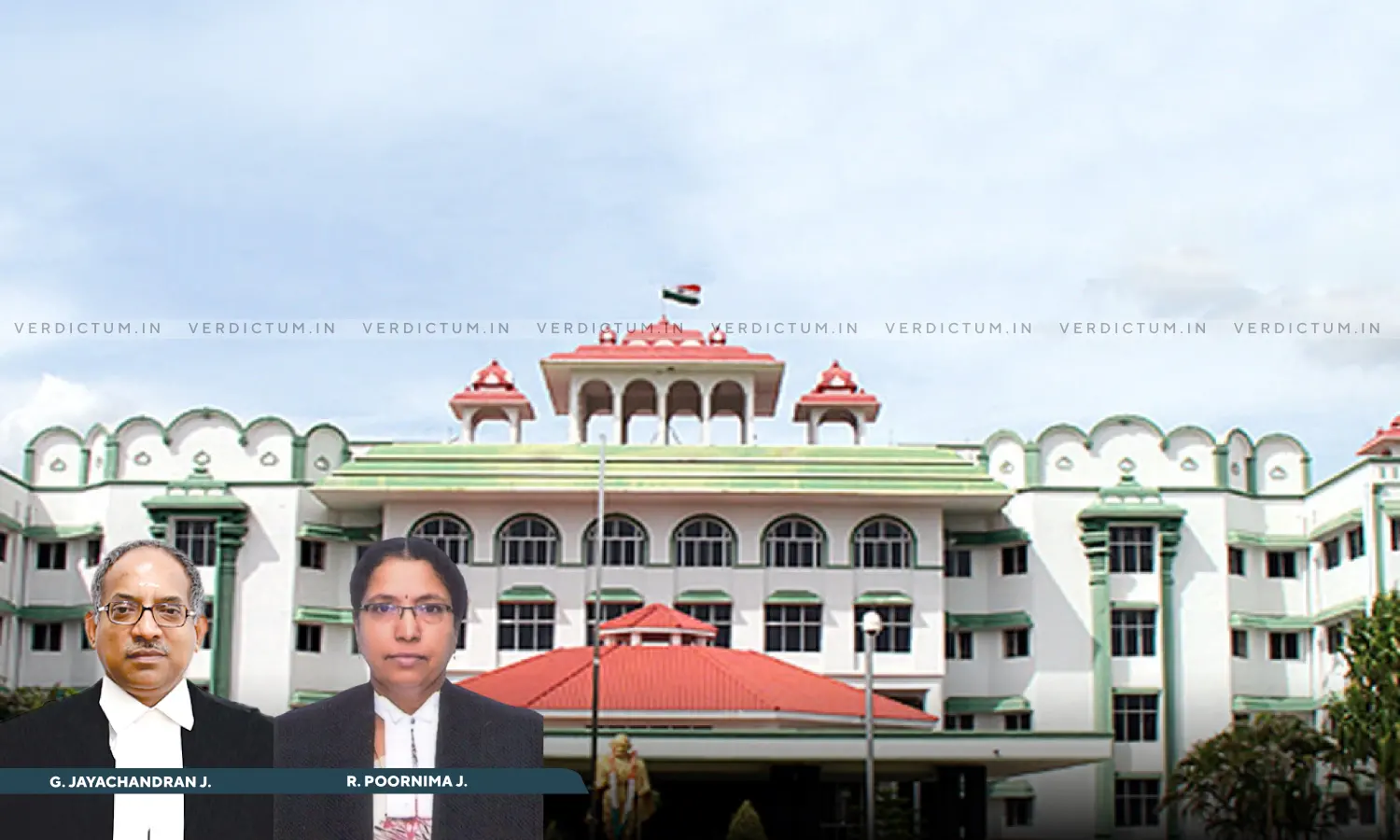Wordy Quarrel Not Sudden Provocation: Madras High Court Upholds Conviction Of Man In Murder Case
The Madras High Court dismissed a Criminal Appeal of an accused, seeking to set aside the conviction and sentence imposed against him by the Sessions Judge.

The Madras High Court has upheld the conviction of a man in a murder case, on the ground that wordy quarrel is not a sudden provocation.
The Madurai Bench was hearing a Criminal Appeal filed by the accused, challenging the Judgment of the Sessions Judge and seeking to set aside the conviction and sentence imposed against him.
A Division Bench comprising Justice G. Jayachandran and Justice R. Poornima held, “To prove the offence as culpable homicide not amounting to murder, there must be evidence showing that the accused was provoked by the act of the deceased lost his self-control and caused death. However, according to P.W.2, both the deceased and accused had a wordy quarrel. It is not proved that the deceased provoked the accused to commit murder.”
The Bench took note of the fact that the accused and deceased had wordy quarrel due to a land dispute and both abused each other.
Advocate G. Karuppasamy Pandian appeared on behalf of the Appellant/Accused while Additional Public Prosecutor (APP) A. Thiruvadi Kumar appeared on behalf of the Respondent/State.
Factual Background
As per the prosecution case, the Complainant had two sons and a daughter who resided with him after separation from her husband, along with his granddaughter. Opposite to his house, a man had constructed a house and was residing there. His family and the family of the brother of his wife had enmity for a long time. Both him and his son i.e., the Appellant-accused had previous enmity with the Complainant and his family. They had often engaged in verbal quarrels with them. One day, the Complainant and his two sons went to his field and his wife and granddaughter were staying in his house. He was returning from the field, to his house and when he neared the house, he saw his wife was doing some work near a compound wall.
Allegedly, at that time, the accused came, took the knife being hidden at his hip, and indiscriminately stabbed his wife on her back side of the neck. His granddaughter raised an alarm and the Complainant also raised a hue and cry and rushed to the spot. Some persons witnessed the occurrence and they also raised hue and cry. The accused fled away and thereafter, a Complaint was registered. The Trial Court convicted the accused for the offence under Section 302 of the Indian Penal Code (IPC) and sentenced him to undergo an imprisonment for life along with a fine of Rs. 3,000/-. Hence, the accused was before the High Court.
Reasoning
The High Court in the above regard, observed, “Grave and sudden provocation is an exception to the crime of murder under section 300 of IPC that can reduce the charge to homicide if the accused is deprived of self-control by provocation and caused murder. … Now we have see whether wordy quarrel between two persons would come under the purview of sudden provocation.”
The Court said that grave and sudden provocation means in a situation, an individual due to extreme emotional distress caused by provocative actions or circumstances, loses self-control and commits a wrongful act, potentially leading to death.
“… all the witnesses stated that the accused arrived at the scene of occurrence with a knife which he had concealed at his hip and inflicted injuries on the deceased, ultimately causing the death. This proven that the accused came prepared with a dangerous weapon with an intention to kill her. He targeted the neck and caused injuries which is a vital part of the body but he did not stopped with single stab attacked indiscriminately. This demonstrate that he was aware that inflicting injuries in such vital parts, endanger the victims life. Moreover it is proven that the injury inflicted by him was sufficient to cause the death in ordinary course of nature”, it further noted.
The Court, therefore, concluded that the act of the accused amounts to murder under Section 300 IPC and does not fall under the exception or Section 304 IPC culpable homicide not amounting to murder.
Accordingly, the High Court dismissed the Appeal and confirmed the conviction of the accused.
Cause Title- Marudhu Pandi v. The State (Case Number: Crl.A(MD)No.377 of 2021)


